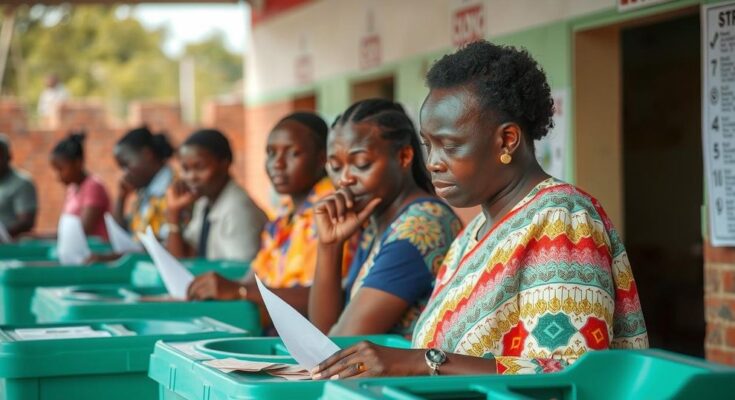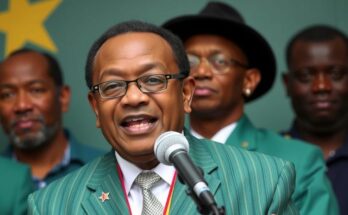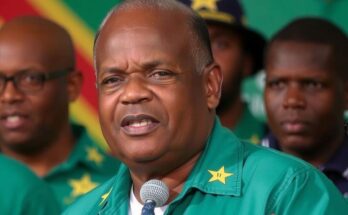Ghanaians voted on December 7, 2024, in crucial elections influenced by a severe economic crisis. The main candidates are Vice President Mahamudu Bawumia and former President John Dramani Mahama. Recent polls suggest Mahama may lead with 52.2%, indicating potential change in leadership amid widespread public discontent regarding the economy.
On December 7, 2024, Ghanaians exercised their democratic rights by voting in pivotal presidential and legislative elections amidst a severe economic crisis characterized by rising inflation and unemployment. Approximately 18.7 million citizens were eligible to cast their votes, facing a choice primarily between Vice President Mahamudu Bawumia of the ruling New Patriotic Party (NPP) and former President John Dramani Mahama of the National Democratic Congress (NDC). While the electoral process commenced at 7 a.m. GMT, the anticipation of results loomed large, as recent opinion polls gave Mahama a slight edge with projected support at 52.2% over Bawumia’s 41.4%. This election not only holds significant implications for the future governance of Ghana but also serves as a crucial test of democracy in a West African region grappling with political instability and economic challenges.
Despite its previous reputation as a beacon of democracy within the region, Ghana’s political landscape has been marred by economic strife, leaving 82% of voters in discontent with the nation’s direction according to a recent Afrobarometer poll. The election’s backdrop is further complicated by social issues such as illegal gold mining, which has exacerbated environmental degradation and sparked public protests against the current administration. As the country endeavored to address these concerns, both candidates made their final appeals to the electorate, with discussions centering around economic recovery and the preservation of democratic principles.
Ghana has historically been perceived as a stronghold of democratic stability in West Africa, often serving as a model for peaceful electoral processes. However, an economic downturn marked by surging inflation and mounting unemployment has led to a loss of confidence among citizens. This election is held against a backdrop of political uncertainty throughout the region, with growing concerns surrounding violence and governmental crises. The outcome could significantly influence Ghana’s economic trajectory and political integrity, especially considering the unresolved issues stemming from the previous administration’s economic performance.
The general elections in Ghana represent a critical juncture for the nation, as voters navigate the complexities of economic distress and political choice. With widespread public dissatisfaction and stark differences in campaign messages, the elections could pave the way for significant shifts in policy and governance. It is essential for Ghanaians to consider the implications of their choices not only for their immediate circumstances but also for the longevity of democratic values in the region.
Original Source: apnews.com




